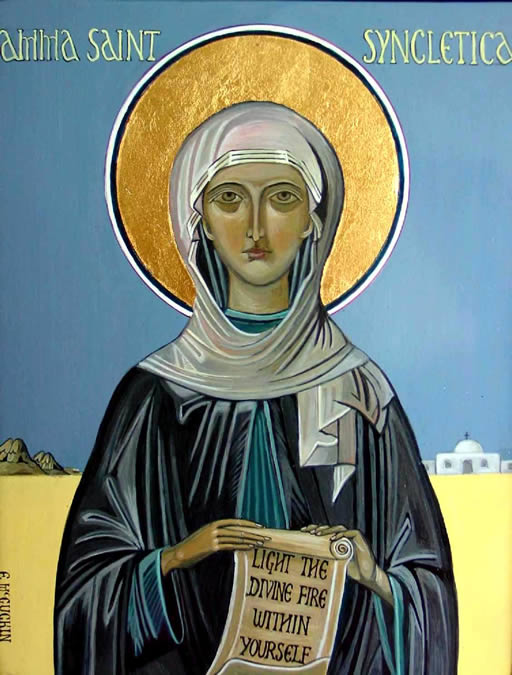 ~~icon of Saint Macarius the Great from Holy Transfiguration Monastery in Boston, Massachusetts
~~icon of Saint Macarius the Great from Holy Transfiguration Monastery in Boston, MassachusettsWe ought to pray, neither according to any bodily habit nor with a habit of loud noise nor out of a custom of silence or on bended knees. But we ought soberly to have an attentive mind, waiting expectantly on God until he comes and visits the soul by means of all of its openings and its paths and senses.
And so we should be silent when we ought and to pray with a cry, just as long as the mind is concentrated on God . . . so also the soul should be totally concentrated on asking and on a loving movement toward the Lord, not wandering and dispersed by its thoughts but with concentration wait expectantly for Christ.
And thus he will enligten, teaching one how to ask, giving pure prayer that is spiritual and worthy of God and bestowing the gift of worship "in spirit and in truth" (John 4:24). . . . God who teaches us how truly to pray. In this way the Lord finds rest in the well-intended soul, making it a throne of glory and he sits on it and takes his rest.
Macarius of Egypt (300-391) was an Egyptian Christian monk and hermit. He is also known as Macarius the Elder, Macarius the Great and The Lamp of the Desert. Saint Macarius founded a monastery that bears his name, the Monastery of Saint Macarius the Great, which has been continuously inhabited by monks since its foundation in the fourth century. Today it belongs to the Coptic Orthodox Church. The entirety of the Nitrian Desert is sometimes called the Desert of Macarius, for he was the pioneer monk in the region. The ruins of numerous monasteries in this region lend credence to the local tradition that the cloisters of Macarius were equal in number to the days of the year.

The Monastery of Saint Macarius the Great in Wadi El-Natroun, Egypt

No comments:
Post a Comment